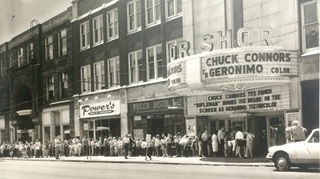Comfort, protection, advice and care in times of domestic crisis
In Minnesota’s Cass County, the Family Safety Network offers ‘lifelines’ for victims of domestic violence
Seven times.
On average, that’s how many times a domestic violence victim leaves and returns to her abuser before leaving for good.
Residents within Cass County, Minnesota can go to sleep at night knowing they have a 24-hour resource as strong as the Family Safety Network (FSN).
FSN provides services such as legal advocacy, housing and financial advice, and protection to domestic violence victims in the area. The organization serves the more than 22,000 residents of Cass County, including the Leech Lake Reservation.
A step below law enforcement, FSN positions itself primarily as a direct service, and secondarily as a liaison. Advocates serve clients by providing support, presenting options and linking clients to other needed resources.
Executive director Chris Swenson refers to the FSN advocates as “lifelines.”
“It’s a fine line we walk as advocates. Part of what we do is putting victims in touch with other community resources,” says Swenson. “We provide information to our victims about what’s available and what their options are, but it’s entirely up to them whether they want those things to happen.”
In February 2018, the organization will be celebrating 25 years of service. Of those 25, Swenson has been active for 17.
Including the Leech Lake Reservation, the FSN covers an area larger than 2,000 square miles. That wide expanse of land is one of the major obstacles the organization—and victims—face.
And with the closest shelter 35 miles away, FSN’s five-year expansion dream is to offer a shelter for victims in urgent need. Swenson says FSN currently uses hotels and motels for shelter, but this has proven to be quite costly and dependent on availability.
In Swenson’s 17 years, she has seen the organization and Cass County undergo numerous changes to strengthen their service. A big leap forward has been a policy change to streamline the handoff of victims between law enforcement and FSN. Now, victims are immediately connected to FSN advocates at the site of a scene.
“Our 24-hour crisis line permits us to handle a victim’s needs as soon as possible,” says Swenson, “and officers are freed up from a scene earlier, too.”
Enbridge is committed to improving quality of life in the communities near our operations and projects, including the proposed Line 3 Replacement Project through northern Minnesota, North Dakota and Wisconsin.
In 2016, we invested more than $800,000 across the state of Minnesota in community-strengthening initiatives. And our recent donation of $3,000 will go toward the direct service that FSN offers, including the organization’s 24-hour crisis line, consultation services to provide sound advice, and filing processes of court documents.
In such a complicated and often heavy line of work, Swenson finds fulfillment in seeing the dramatic positive change the FSN can have in victims’ lives.
“It’s pretty amazing. People come in at a time of crisis and come out on the other side stronger, healthier and empowered,” says Swenson. “They have all of those traits when they come in here; we just help them to realize it.”










